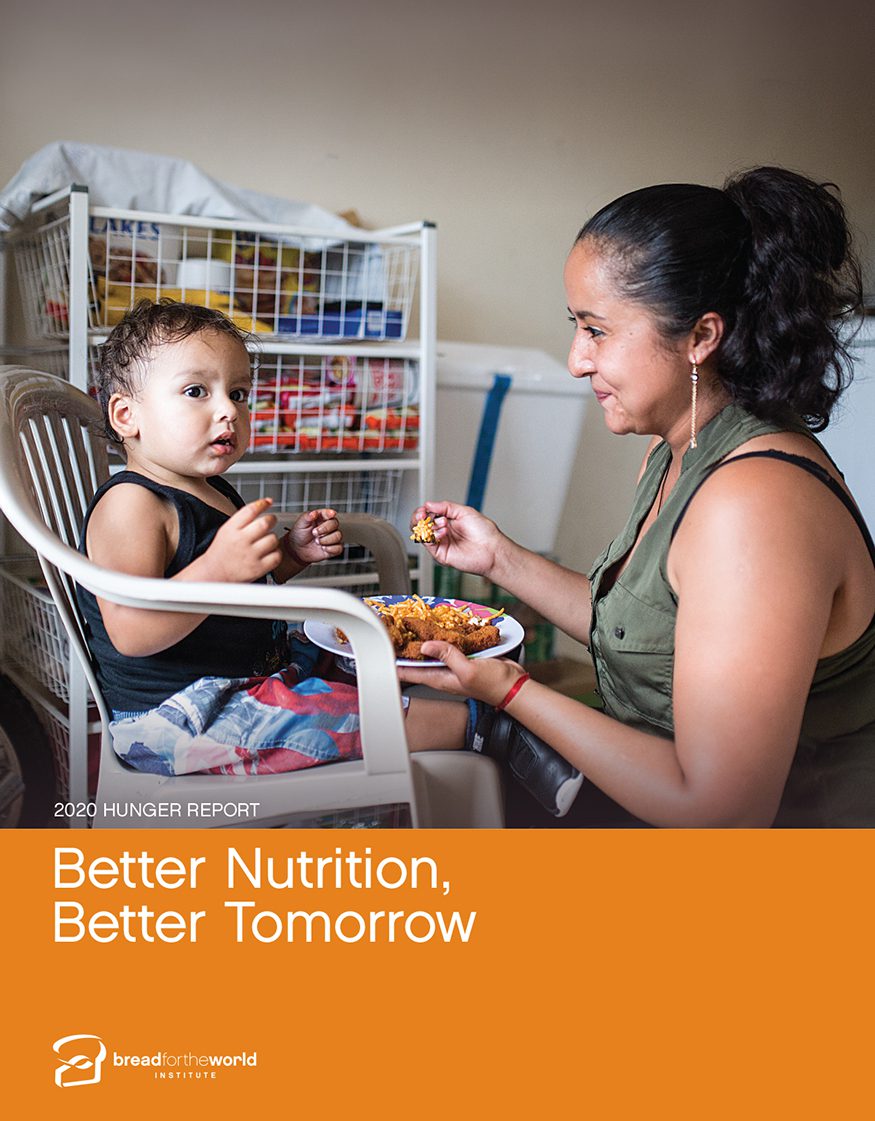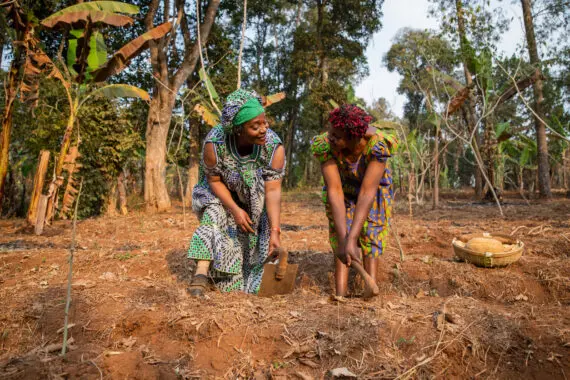By Michele Learner
Human well-being—nutrition and health—must be at the heart of the global food system. Making these the top priorities will require systemic change with equity. These were two main points conveyed June 28 at the virtual launch of Bread for the World Institute’s 2020 Hunger Report, Better Nutrition, Better Tomorrow.
Both Dr. David Nabarro, Special Envoy for COVID-19 Response to the Director General of the World Health Organization (WHO), and Rev. Dr. Heber M. Brown III, founder of the Black Church Food Security Network in Baltimore, pointed out that the COVID-19 pandemic has exposed the extreme frailty of many global and national systems. Although these systems are ostensibly in place to ensure that people have access to food, health care, and a way to earn a living, the reality is that before the pandemic, they were not working for hundreds of millions of people. Daily news reports of the disastrous results of human errors send a clear message: people around the world need to develop better ways of conceptualizing and building structures that promote our well-being and that of the planet.
The goal now should be to draw on human creativity to accomplish this, the speakers agreed. It is particularly important to seek out and welcome contributions from people who are not typically considered leaders. The multiple shortcomings of the COVID-19 response thus far–in health, hunger, economic resilience, and other areas—stem from the failure to put human needs at its center.
Nabarro said that one way to persuade world leaders that systems must change to prioritize human needs is to emphasize humanity’s duty—and its self-interest—to care for babies and toddlers. The nutritional needs of the 1,000 days between pregnancy and age 2 cannot wait. Every year, missing this nutrition window causes the preventable deaths of more than 2 million young children and, for many others, the lifelong disabilities associated with stunting. World leaders can and should get behind the idea that it is a grave injustice to deny small children the nutrients they need.
In spite of the failures and the tragic loss of human life associated with COVID-19, the world has also seen individual, community, and national victories. These are the results of people’s capacity to rise above adversity and develop practical solutions to pressing problems. Nabarro said he continues to hear many amazing examples of strategies to meet needs that have been developed by people all over the world—often, people who are unexpected. Such leadership may come from women, people with few material resources or little education, youth, or others of traditionally lower status.
Brown said that COVID-19 has brought members of black churches in several states back to the land. Right now, church cannot mean getting dressed up on Sunday and sitting among a large group of other people in an indoor sanctuary. But it can mean gardening while observing public health guidelines.
The adage “Think globally, act locally,” familiar to many anti-hunger advocates, takes on added meaning when the goal is to change how a system works. It includes identifying successes under similar circumstances, no matter where these took place, and adapting what has been learned to one’s own context. It includes setting a priority to ask people with experience to share strategies that have helped them. It includes involving in program design, from the very beginning, people who have survived previous crises and/or intersecting forms of oppression. These actions will hopefully sound familiar to Bread members since they are key principles of building racial equity—an integral part of our work and an essential condition for ending hunger.
Brown noted that, once people have survived the worst of a disaster, they have a tendency to “hit the snooze button and go back to sleep.” But both he and Nabarro warned that we must not squander this brief window of opportunity to keep pressing for sustainable change.
Go here to watch the recording of the Hunger Report launch.
Michele Learner is managing editor with Bread for the World Institute.



